




Shibaura Institute of Technology (SIT) is a highly-ranked
science and engineering university in Tokyo.
Here at SIT we aim to carry forward the spirit of
'Monozukuri' or craftsmanship, contribute to global innovation
through our cutting-edge research in science and technology,
and foster a culture of diversity in everything we do.
SIT promotes these values by welcoming international students
from our global network of partner universities, creating a vibrant,
multicultural campus where students engage daily with
peers from diverse cultural and academic backgrounds.
Innovative Global Program (IGP) at SIT's
College of Engineering aims to prepare students
to be the next generation of science and technology specialists,
with the skills to contribute to their fields as global engineers.
The IGP enhances the learning experience for English-speaking
and international students by providing them with various tools
to design their own unique Honors Program based
on their interests.
Right from the start of the program,
first-year students are involved in research projects
and learn actively through mentorship in the laboratory of
their chosen major (Research-Based Learning).
Shibaura Institute of Technology (SIT) is a highly-ranked science and engineering university in Tokyo.
Here at SIT we aim to carry forward the spirit of 'Monozukuri' or craftsmanship, contribute to global innovation through our cutting-edge research in science and technology, and foster a culture of diversity in everything we do.
SIT promotes these values by welcoming international students from our global network of partner universities, creating a vibrant, multicultural campus where students engage daily with peers from diverse cultural and academic backgrounds.
The Innovative Global Program (IGP) at SIT's College of Engineering aims to prepare students to be the next generation of science and technology specialists, with the skills to contribute to their fields as global engineers.
The IGP enhances the learning experience for English-speaking and international students by providing them with various tools to design their own unique Honors Program based on their interests.
Right from the start of the program, first-year students are involved in research projects and learn actively through mentorship in the laboratory of their chosen major (Research-Based Learning).


As soon as students join the program, they begin to get hands-on experience in laboratory Research-Based Learning, mentored by their laboratory supervisor & faculty advisers in their major. Research-Based Learning continues throughout four years in the Program. Students are guided by a supervisor and advisers to create an interdisciplinary major by combining selected courses that fit their individual learning needs. First-year students can start researching a theme or a specific issue and formulate a specific curriculum accordingly.
As soon as students join the program, they begin to get hands-on experience in laboratory Research-Based Learning, mentored by their laboratory supervisor & faculty advisers in their major. Research-Based Learning continues throughout four years in the Program. Students are guided by a supervisor and advisers to create an interdisciplinary major by combining selected courses that fit their individual learning needs. First-year students can start researching a theme or a specific issue and formulate a specific curriculum accordingly.
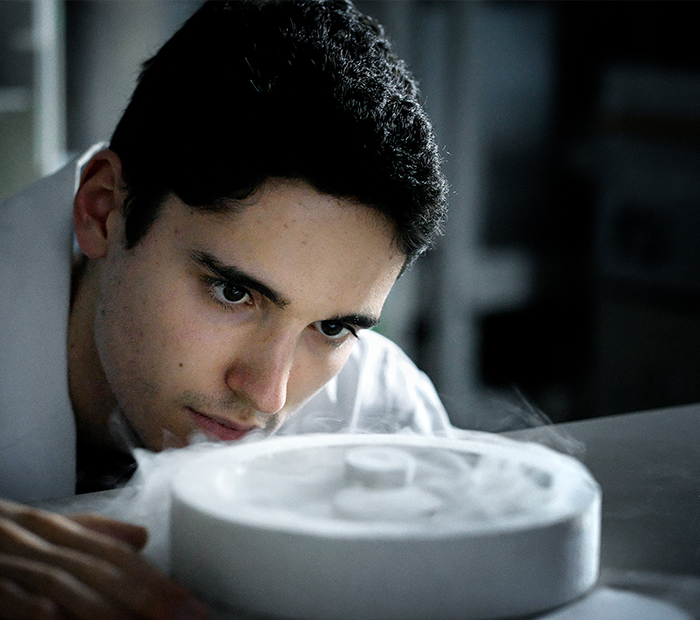
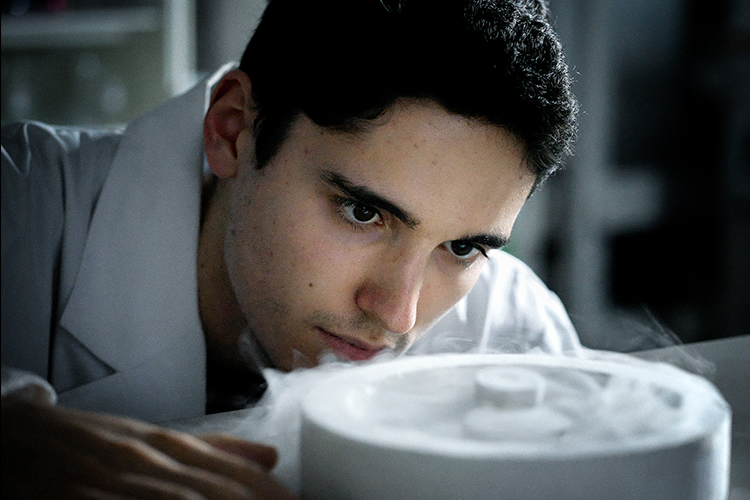



From their second year, students are given the opportunity to undertake labrotations, spending short periods in laboratories of various disciplines to acquire interdisciplinary knowledge of other fields.
Students can gain a broad perspective on science and engineering while learning to solve problems using a variety of approaches characteristic of each field.
From their second year, students are given the opportunity to undertake lab rotations, spending short periods in laboratories of various disciplines to acquire interdisciplinary knowledge of other fields.
Students can gain a broad perspective on science and engineering while learning to solve problems using a variety of approaches characteristic of each field.
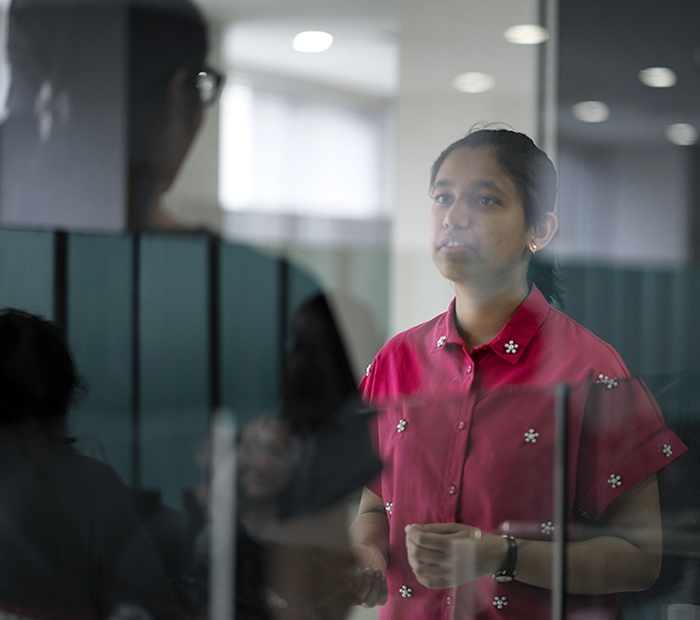
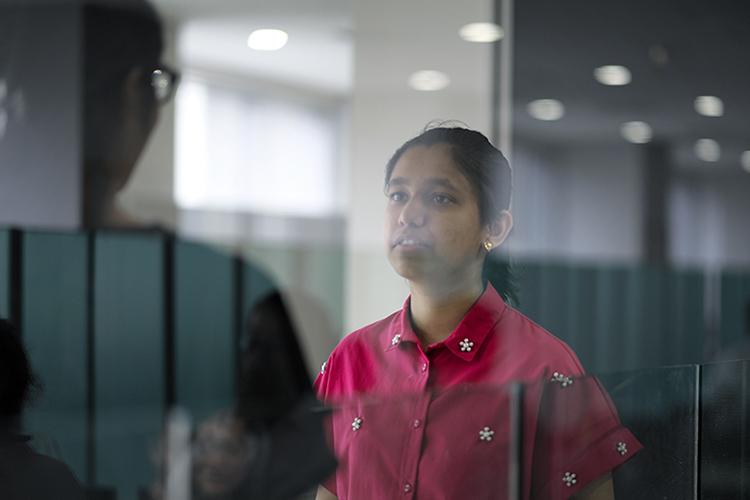



Students aim to present their own research results at an International Conference at least once during their studies. For the Graduation Thesis Program, from third year, they form their own team, plan and conduct research, confirm their results with experts inside and outside their field, and disseminate their results to society by presenting their research at international conferences.
Students aim to present their own research results at an International Conference at least once during their studies. For the Graduation Thesis Program, from third year, they form their own team, plan and conduct research, confirm their results with experts inside and outside their field, and disseminate their results to society by presenting their research at international conferences.
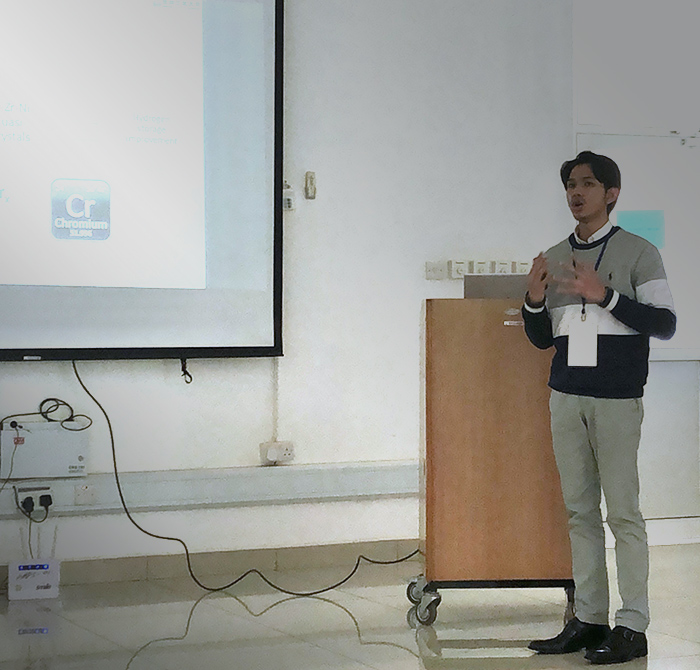
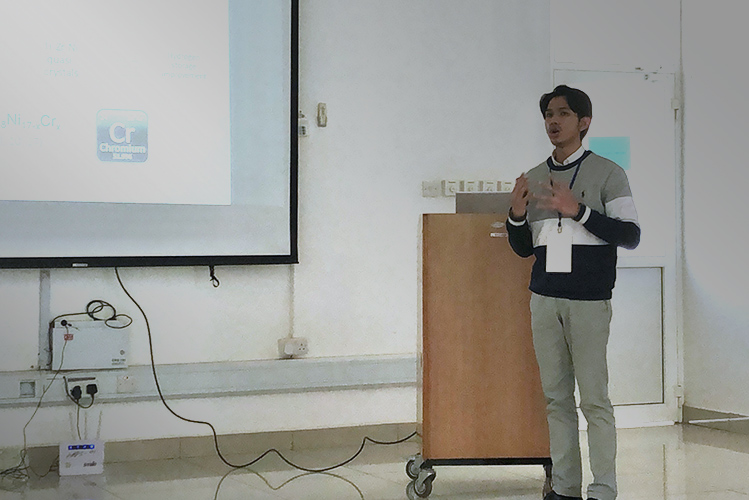

Polymer FabTech Lab
※former name: Laboratory of Polymer Materials Chemistry
Biophotonics Laboratory
※former name: Radiation Transfer Laboratory
While undertaking Research-Based Learning, students also
study foundational science courses, required specialized
subjects and other disciplines to ensure they gain
the deep understanding needed for advanced research.
The capacity to demonstrate international teamwork and
leadership is fostered by incorporating presentations and
discussions. The curriculum is also structured to ensure
that each graduate also carries the Program’s core values of
ethics, respect for diversity, and social contribution into
their careers.
While undertaking Research-Based Learning, students also study foundational science courses, required specialized subjects and other disciplines to ensure they gain the deep understanding needed for advanced research. The capacity to demonstrate international teamwork and leadership is fostered by incorporating presentations and discussions. The curriculum is also structured to ensure that each graduate also carries the Program’s core values of ethics, respect for diversity, and social contribution into their careers.



The IGP fosters students who can solve social issues with a
bird’s-eye view and ethical sense as an engineer and
contribute to the international society showing leadership.
The IGP fosters students who can solve social issues with a bird’s-eye view and ethical sense as an engineer and contribute to the international society showing leadership.

To provide students with the most advanced research settings,
teaching faculty members are selected from the highest level in their respective research fields, and are frequent contributors to international conferences and scholarly journals.
Multinational teaching faculty members also supervise the students’ research.
To provide students with the most advanced research settings, teaching faculty members are selected from the highest level in their respective research fields, and are frequent contributors to international conferences and scholarly journals. Multinational teaching faculty members also supervise the students’ research.

Students are provided details of the Tokyo, Toyosu campus
where they will spend their four-year university life, and
essential information about accommodation as well as
information to support their everyday life.
Students are provided details of the Tokyo, Toyosu campus where they will spend their four-year university life, and essential information about accommodation as well as information to support their everyday life.
1st Screening
(Screening of Documents and Internet Based Test)
Notification of 1st Screening Result by
January 23, 2026
2nd Screening (Online Interview)
Final Result Notification by
March 26, 2026
1st Screening
(Screening of Documents and Internet Based Test)
1st Screening Result Notification of by
April 24, 2026
2nd Screening (Online Interview)
Final Result Notification by
May 28, 2026
※Entrance exam for 2026 Spring enrollment will not be held.